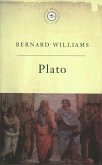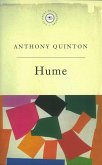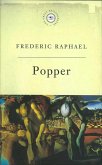Part of the GREAT PHILOSOPHERS series.
John Locke 1632-1704
What Newton did for physics in the seventeenth century, Locke did for philosophy. The revolution wrought by these two giants established the intellectual underpinnings of the modern world.
Yet out own age has called their contributions into question. While Newton's universe has come to seem unduly mechanistic, Locke has been out of favour for his wordy rhetoric, the apparent imprecision of his thought and the perceived irrelevance of his once-radical empiricism.
This fascinating guide restores an underrated thinker to his rightful place at the very centre of modern philosophical enquiry. Basing his exposition upon a resourceful re-reading of An Essay concerning Human Understanding, Michael Ayers explains the historical significance of Locke's philosophical project, and its continuing capacity to challenge and compel.
John Locke 1632-1704
What Newton did for physics in the seventeenth century, Locke did for philosophy. The revolution wrought by these two giants established the intellectual underpinnings of the modern world.
Yet out own age has called their contributions into question. While Newton's universe has come to seem unduly mechanistic, Locke has been out of favour for his wordy rhetoric, the apparent imprecision of his thought and the perceived irrelevance of his once-radical empiricism.
This fascinating guide restores an underrated thinker to his rightful place at the very centre of modern philosophical enquiry. Basing his exposition upon a resourceful re-reading of An Essay concerning Human Understanding, Michael Ayers explains the historical significance of Locke's philosophical project, and its continuing capacity to challenge and compel.
Dieser Download kann aus rechtlichen Gründen nur mit Rechnungsadresse in A, B, BG, CY, CZ, D, DK, EW, E, FIN, F, GR, HR, H, IRL, I, LT, L, LR, M, NL, PL, P, R, S, SLO, SK ausgeliefert werden.









